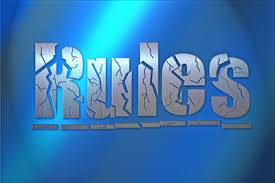College Application Essays
Write Like You Talk
The voice and tone of narrative essays usually is “looser” or more “casual” than the typical academic essay. To do that, however, you often have to break the rules. Bend them gently and stay consistent. But if it sounds right, go for it!
The best tip for striking a more familiar tone with your college application essay: Write like you talk!
Harry Bauld, who wrote what I think is the best book on how to write college application essays–On Writing the College Application Essay–advises students to stick with an informal voice. He likens this voice to “a sweater, comfortable shoes. The voice is direct and unadorned.” Stay away, he says, from language that is too formal, which he dubs, “tuxedo talk.”
This stiff type of writing is used by people who want to sound smart and important; most popular among scholars (including English teachers!), lawyers and other professionals who want to sound like they know their stuff even when they don’t. It’s a dead giveaway that you are trying to impress–something you don’t want to reveal in these essays, even if that’s one of your goals.
Bauld said: “Work toward the informal. It is the most flexible voice, one that can be serious or light. On top of that bass line, you can play variations–just as you do with rhythm.”
When you write informally, you often need to break some of the rules of formal English. Here are some that are okay to break, but don’t overdo it!

- Use phrases or sentence fragments. Do this mainly for emphasis. Example: “I was shocked. Stunned. I couldn’t even talk. Not a word.”
- End a sentence with a preposition. Again, stick with what would sound normal in conversation. “What do you want to talk about.” Instead of, “About what do you want to talk?”
- Start a sentence with “And” or “But.” Again, use this for emphasis. Don’t over do it! “He ate the hamburger. And then he devoured three more.”
- Throw in onomatopoeia. Remember those words that sound like what they are? Bang. Whack. Whoosh. Zip. Boom.
- Use dialect or slang. Only use these if they are true to the speaker you are quoting. If you are quoting a surfer, it sounds appropriate if they say, “The waves were so awesome!” If they are from the Deep South, they can say, “Ya’ll.”
- Contractions are fine. Again, trust whether it sounds OK within the larger context of your essay. “I didn’t want to go there.” Instead of, “I did not want to go there.”
- Split those infinitives. It’s just not a big deal. “To boldly go where no man has gone before.”
Remember, these are only rules to break if they help create your voice, tone or make a point. Above all, writing casually does not mean you forget about grammar, spelling, punctuation, and all the way you make your writing clean and accurate. You can only bend rule when you know the rules and stick to the important ones.
Also, after you write your rough draft, go back and read it again. Ask yourself: Would I really say that or am I trying to sound smart? If it sounds formal and pretentious at all, try to say it in a more direct and casual way.
For help finding a unique topic and crafting a narrative essay, check out my short, handy new book, Escape Essay Hell!: A Step-By-Step Guide to Writing Standout College Application Essays.







